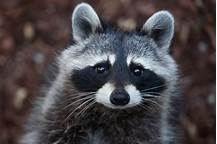Can You Have a Raccoon as a Pet in Oregon?
Raccoons can make interesting and affectionate pets but are also wild animals with unique needs. Before deciding whether to get a raccoon as a pet in Oregon, consider the laws, regulations, and responsibilities involved.

Oregon Laws and Regulations on Raccoon Ownership
1. Permit Requirements:
In Oregon, it is illegal to possess a raccoon without a permit from the Oregon Department of Fish and Wildlife (ODFW). Permits are only issued for educational, scientific, or wildlife rehabilitation purposes, not as pets.
2. Health and Safety Concerns:
Raccoons can carry diseases that can be transmitted to humans, including rabies, roundworm, and leptospirosis. Pet raccoons must be vaccinated and regularly checked by a veterinarian to prevent the spread of disease.
3. Housing and Care Requirements:
Raccoons require specialized housing that meets their unique needs. They need a large enclosure with plenty of space to move around, climb, and play. The enclosure must be secure to prevent escape and injury to the raccoon or other animals.
Responsibilities of Raccoon Ownership
1. Proper Diet:
Raccoons have specific dietary needs and should be fed a balanced diet of fruits, vegetables, insects, and meat. A veterinarian can provide guidance on the proper diet for a pet raccoon.
2. Socialization and Training:
Raccoons are social animals and require regular interaction with their owners. They need to be socialized and trained to behave appropriately in a domestic setting.
3. Veterinary Care:
Raccoons require regular veterinary care, including vaccinations, checkups, and treatment for any medical conditions. Owners must be prepared to provide proper veterinary care for their raccoon's health and well-being.
Alternatives to Raccoon Ownership
If you are interested in observing or learning about raccoons, consider alternatives to pet ownership:
1. Wildlife Rehabilitation:
You can volunteer at a wildlife rehabilitation center and assist in the care and rehabilitation of injured or orphaned raccoons.
2. Nature Centers and Sanctuaries:
Many nature centers and sanctuaries allow visitors to observe raccoons and other wildlife in their natural habitat.
3. Educational Programs:
Some organizations offer educational programs that teach people about raccoons and their role in the ecosystem.
Raccoons are fascinating creatures but require specialized care and handling. Before considering a raccoon as a pet, thoroughly research the laws, regulations, and responsibilities involved. Alternative options like wildlife rehabilitation and educational programs provide opportunities to appreciate and learn about raccoons without the challenges of pet ownership.
Declaration: All article resources on this website, unless otherwise specified or labeled, are collected from online resources. If the content on this website infringes on the legitimate rights and interests of the original author, you can contact this website to delete it.






